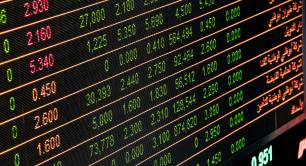The missing piece from Mark Carney's Reith lecture on value
For most of us, accounting is so boring it is neither seen as part of the problem or part of the solution. But how can something that humans constructed be a neutral bystander in the future of our economy? In the first of his new Nicholls & Dimes series for Pioneers Post, social value expert (and optimist) Jeremy Nicholls responds to the recent Reith lectures delivered by former Bank of England Governor Mark Carney – and asks how eminent economists can explore new notions of ‘value’ while apparently ignoring the fundamental role of accounting.
It has increasingly dawned on those responsible for managing the global economy that the scale of the challenges of climate change and rising inequality is going to need some fundamental changes. What sort of fundamental change depends on your goal, but you can take your pick from responsible capitalism, inclusive capitalism, or social welfare capitalism. It depends on what we value.
In the most recent Reith Lectures entitled ‘How We Get What We Value’, Mark Carney, one of the world’s top economists and until recently the Governor of the Bank of England, explored the question of value starting with the breakdown of the link between morals and markets, considering the challenges we now face and then proposing solutions to the climate crisis. He asked why many of the resources on which our businesses depend are not in a ledger and gave the example of the Amazon rainforest only appearing when it has become a cattle farm. He recognised that price was not always a good measure of value. The extent to which people still talk about high value jobs for highly paid people, when Covid-19 has shown us that it is the relatively low paid jobs that are high value, shows though the extent to which worth and price have become substitutes. Carney argues that markets have run away with themselves and that the most common solution to market failure of more markets and less regulation only exacerbates our problems caused by our very human behaviours. Humans are notably guilty of short termism, over-reliance on what we have done before, and on the assumption that things we know about are more common than they are. Add self-interest and the challenge of the commons to the mix and it is no surprise we’re in this mess.
Most importantly, Mark Carney recognises that society’s goal is to increase wellbeing, which is bang on the message with the British Standard on Enhancing Social Value that was also released just before Christmas. And although inequality isn’t one of his big challenges, Covid is, and Oxfam’s recent report on the Inequality Virus focuses on how Covid is increasing inequality. And he knows we need a way to ensure that society’s values drive the creation of value. All good.
A social construct
But extraordinarily for a banker, Carney makes no mention of financial accounting as either part of the problem or part of the solution. And yet there would be no banking without accounting, no economics without accounting, no investment driving growth of any kind, carbon neutral or not, without accounting. It is as if accounting is already neutral and can be ignored. But how can it be neutral? It is a social construct, constructed in a particular time and place.
How can accounting be neutral? It is a social construct, constructed in a particular time and place
Over the last 200 years our economic system has generated massive increases in living standards, driven by using the planet’s limited resources and by our ability to invest against future returns. Unfortunately, this system has not effectively priced the use of the resources on which we are all dependent, nor has it effectively priced for the needs of future generations. It has blithely assumed that growth means there will be more for those generations, and largely ignored both population growth and how benefits and disbenefits from growth are distributed. Where dependencies are recognised, they still tend to focus on environmental issues and on natural capital and do not sufficiently recognise our dependency on poorly paid, insecure jobs, in care and deep in supply chains. Supply chains where few or no trade unions leave people protected only by national legislation in countries desperate to create employment and by voluntary company supplier audit processes. Let alone our dependency on what is bizarrely called modern slavery, as if it is somehow more shiny and up-to-date than that old fashioned slavery.
It is, though, difficult to conceive of the scale of investment that has been made possible by the ability to invest against future returns. The numbers are in the trillions and simply too big to grasp.
Historically, charging interest for lending money has been frowned upon by most of the world’s religions, until the Pope needed to finance the Crusades and trade off the sin of paying interest against time spent in purgatory. But this was just the first step. Getting to scale needed more than a change in culture, it needed new vehicles to manage and share risk; first the joint stock company and then today’s dominant legal vehicle, the limited liability company. But to really ramp up investment, we needed secondary markets so we could invest in companies where we would never know the managers, and we needed an approach to measuring the value the company was creating and calculating our share.
Our economic system has blithely assumed that growth means more for future generations, and largely ignored both population growth and how benefits and disbenefits are distributed
And so, we already have a dominant, standardised approach to accounting for value. It underpins our economic system and contributes to investment decisions – financial accounting.
For most of us, accounting is the very boring but intrinsically simple approach to counting money. It measures how much money a company has, which determines my dividends, and informs its potential to generate more money, which influences the value of my investment in that company. So boring that all the solutions we have been offered to this global crisis have ignored it. It's neither part of the problem nor part of the solution. Of course, investors bring in other information in making their assessments of the value of the enterprise, in assessing the value of future cash flows, but financial accounting is the standardised starting point.
Accounting has been around for thousands of years but its current form kicks off with universities in the 12th century (and the enthusiasm for measurement and personal accountability) and is picked up by the nascent banking system before becoming the international standardised approach we all directly or indirectly use today. There is not one single international approach, but the differences are like the differences between sheep to a shepherd, so we can focus on the main international standard that is managed by the IFRS, a privately organised, not-for-profit organisation established to serve the public interest. The IFRS is in turn overseen by a monitoring committee made up of capital markets authorities responsible for setting the form and content of financial reporting. Its mission is "to develop standards that bring transparency, accountability and efficiency to financial markets around the world. Our work serves the public interest by fostering trust, growth and long-term financial stability in the global economy".
In the IFRS Due Process Handbook there is a more specific reference: "The confidence of all users of financial statements in the transparency and integrity of those statements is critically important for the effective functioning of capital markets, efficient capital allocation, global financial stability and sound economic growth."
‘Sound economic growth’ is not defined but either way this begs the question – why do we need these things? Mark Carney would perhaps now say to increase global wellbeing and if so I would agree. If it were to concentrate wealth in the hands of a few it could perhaps claim success but if it is global wellbeing, then it has not been so successful. GDP just does not hack it as a measure of global wellbeing for many reasons but, to pick one, because it fails to allow for distribution. While there has been an increase in the global middle class, standardise for population growth and there are broadly the same number of people who are extremely poor (currently the 800 million people living on less than US$1.9 per day) as when Mark Carney’s most referenced economist, Adam Smith, was writing The Wealth of Nations. The main difference is that we also now have around 3 billion on between $1.9 and $10 dollars a day, many of whom work in those supply chains on which our lifestyles depend.
So the first part of the solution to our global challenges must be for the IFRS to redefine its mission in terms of human wellbeing and then consider whether its standards fit the new bill.
GDP just does not hack it as a measure of global wellbeing
Currently those standards aim to provide the maximum number of future and potential primary users (that is investors, lenders and suppliers) with information to make decisions to provide resources to an entity (the language used for a business) and for this they need information on the economic resources that the entity controls and on managers’ stewardship of those resources in order to assess the ability of the company to generate net cash inflows (which will drive those dividends and stock market valuations). In other words, it’s about individuals investing to make personal financial returns.
Rich, white men
There are a few problems with this.
The purpose is for users that have no interest in what happens to other people because of those investments and it does not fully consider the safety of investors who are making short-term decisions. There is a word to describe a person with no empathy who does not think about their own safety and does not have the ability to make long-term plans. A sociopath.
There is a word to describe a person with no empathy who does not think about their own safety and does not have the ability to make long-term plans – a sociopath
We must back up a bit and think about the history of accounting to work out why this has happened. In those early days, from beginnings of banking in Italy in the 13th century to the rise of the limited liability company in the UK in the 19th century, nearly all those people making these decisions were (and probably still are) men and specifically rich men. And in the early stages many of those men were investing in trade and shipping, in activities that drove and underpinned European colonialism. It was the approach that allowed people to report profits from (old-fashioned) slavery. And so accounting was designed by and for, rich white men and until we can bring a class, race and gender lens to accounting standards, accounting is going to continue to drive inequality and climate change far faster than any of the other proposals that Mark Carney, and others, are making will offset them. It is not as if everything is standing still while we sort a few problems out. We are running (though with the general appearance of stability) towards a cliff edge.
Although IFRS aims to meet the information needs of a maximum number of current and potential investors, it turns out it was designed to meet the information needs of a maximum number of rich white men and to indirectly reinforce the imbalance of power between men and women and between ownership of economic resources still rooted in the historical exploitation of other people and their resources.
This is not what Adam Smith would have promoted. Mark Carney refers to his excellent other book, The Theory of Moral Sentiments, where Smith said: "However selfish man may be supposed, there are evidently some principles in his nature, which interest him in the fortune of others, and render their happiness necessary to him, though he derives nothing from it except the pleasure of seeing it."
That history means that accounting is specifically not interested in this. The consequences of a business’s activity – for example, its contribution to climate change as experienced by others – are not in scope, whether positive or negative. Accounting standards have no empathy, no guilt and no remorse if others are harmed or mistreated. Unless of course these consequences may affect the assessment of ability to generate cashflows. And even then, only selectively, based on assets under the entity’s control and on liabilities from past events, where these assets and liabilities can be measured in terms of money.
There is plenty of research that investors – and I do not mean those who manage investments on our behalf directly or, like pension funds, hold them in trust, I mean you and I, the underlying owners of those investments – are interested in consequences and do not want financial returns alongside negative impacts. Social Value UK carried out research with YouGov that suggested that 85% people wanted an accounting system that was not limited to financial returns. An accounting system with wellbeing at its core would continue to account for financial returns alongside other ‘returns’ that increase wellbeing. But it would also recognise that ever-increasing income doesn’t mean ever increasing wellbeing, while societies with low inequality have higher well-being than those with a similar GDP but a higher level of inequality.
Until we can bring a class, race and gender lens to accounting standards, accounting is going to continue to drive inequality and climate change far faster than any proposals that Mark Carney and others are making
It may not have been IFRS’s intention when they developed standards for existing and potential investors to see potential investors as anyone who is not investing now. Perhaps ‘potential’ referred to those that had the resources to invest. But the world has changed; not only should we consider potential investors irrespective of people’s current resources but in any case recognise that investment is no longer restricted to rich white men. Most of us directly or through pensions and forms of national insurance are already investors. I am willing to take a stab that this wider pool of investors, across class, gender and race, do not only want information about an enterprise’s ability to generate cash inflows for owners. I suspect they also want information on its ability to create positive impacts for others and not to reinforce and exacerbate the effects of decades of colonialism. And there is no reason why accounting standards could not do this.
Mark Carney realised that we need a measure of income and welfare that reflects societies' values but did not raise accounting as part of the solution. The request for more transparency and additional or supplementary information might help, but not if investors have no confidence that the information is complete or can understand how it has informed managements decisions. Focusing on climate is understandable but if decisions to reverse climate change are also increasing inequality, we are swapping one risk for another. We need to jump to an approach that includes the material impacts experienced by people because of a business’s activities. Existing accounting standards would need some development, perhaps a separate statement of impact alongside the balance sheet and the profit and loss, but valuing those impacts in the same units, money, and reducing an entity’s ability to pay dividends where there was a net negative impact, would ensure that the information was useful to those investors.
This is the change that is needed alongside all these other initiatives, one that directly and immediately makes enterprises that are not creating value for societies, to return to Mark Carney’s point, less interesting to investors and driving innovation through new enterprises that can create social and financial returns. IFRS acts for the public good and since governments are represented on the Monitoring Committee through their capital markets authorities, it should be possible, and it is also absolutely necessary, to align social values with the purpose of financial accounting.
- Jeremy Nicholls is a director and one of the founders of Social Value International, and an ambassador to the Capitals Coalition
Thanks for reading Pioneers Post. As an entrepreneur or investor yourself, you'll know that producing quality work doesn't come free. We rely on our subscribers to sustain our journalism – so if you think it's worth having an independent, specialist media platform that covers social enterprise stories, please consider subscribing. You'll also be buying social: Pioneers Post is a social enterprise itself, reinvesting all our profits into helping you do good business, better.




